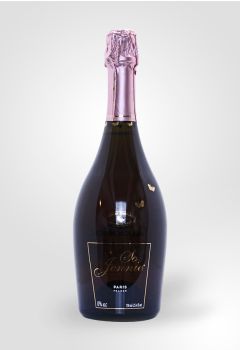Are Low Alcohol Wines The Future?

This is an interesting one. I have read and listening to a number of arguments about why this will be the future of wine.
So What is a Low Alcohol Wine?
The term, “low-alcohol drink” refers to beverages that have an alcoholic strength by volume (ABV) of between 0.5 and 1.2%. A wine with an ABV strength of between 1.2% and 5.5% is a reduced alcohol wine as appose to a low-alcohol wine. We then have wines which reside between this point and around 11.5% which most of us would consider to be low alcohol. This may not have an official classification but as the majority of modern consumers are used to wines with a minimum of 12.5% ABV they are considered to be low strength in comparison.
There are of course health benefits to drinking wines with a lower strength. In the short term you are more likely to get a better nights sleep, feel fresh in the morning and can reduce your calorie intake. Obviously these wine styles will help to reduce the number of units you are consuming thus avoid the more serious long term effects of wine. Needless to say, I am all for drinking less, but make sure you drink better.
Wine Styles
Wines which are lower in alcohol tend to be sweeter, but did you know that as a taste wines have become sweeter over the past 15 years? Over the years many wine makers have begun leaving some of the natural residual sugars in the wine and not fermenting to dryness. This can be partly attributed to the hot climates where many of the New World wines are made. In these areas the grapes naturally produce more sugars and the wine maker has to stop fermentation to keep their wines under 15%. If they were to go over this volume the wine technically becomes fortified (and attracts a higher duty in the UK).
De-Alcoholised wine
Climate Change
I have discussed in previous Wine Club booklets how some regions are becoming too hot for grapes. This is not just because the grapes are becoming too ripe but that they are beginning to breach the upper temperature limit in which wine making grapes can be cultivated. One potential consequence that this change in climatic conditions could have is that we may see an increase in wines being made from fruits other than grapes. There is a fair bit of speculation in the trade on this issue. It is unlikely, however, that this sort of product will have a serious presence in the U.K market any time soon.
Low Alcohol Wine in the Wine Club
So are these wine styles a fad or will there be something in it? I am still open minded about the quality. We currently stock two zero alcohol sparkling wines, the Bees Kness from Germany and So Jenny from France. These are both high quality wines but in order to find these we have had to taste through dozens of low quality products which we feel are inferior to a high quality fruit juice and offer poor value for money. It is very much wrth remembering that our tastes in wine change dramatically over time and wine is as susceptible to trends and fashions as clothing and music. Icronically when German wines were the trend in the 70s and 80s these wines were at 8% ABV. Perhaps with a renewed interest in low alcohol wines we are seeing a shift in trends and our palates are moving back to the softer, more fruity styles of wine. All will no doubt be revealed.
Featured

So Jennie Premium Luxury Bubbles, France
What is MIX6?
Add 6 or more bottles of selected wine to your basket to receive the wholesale price.
